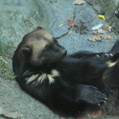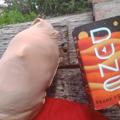Ben Waber reviewed Braiding Sweetgrass by Robin Wall Kimmerer
A Beautifully Written But Content Light Book
3 stars
This book deftly mixes personal stories with an introduction to a wide variety of Native American creation stories, cultural practices, foodways, agricultural practices, and epistemologies (seriously). I also appreciated the academic botanical knowledge that Kimmerer brings here adds a solid additional dimension to the book. I was hoping for much less of a focus on the anecdotal stories here, but if that's what you're looking for you'll like the book even more than I did.
This book deftly mixes personal stories with an introduction to a wide variety of Native American creation stories, cultural practices, foodways, agricultural practices, and epistemologies (seriously). I also appreciated the academic botanical knowledge that Kimmerer brings here adds a solid additional dimension to the book. I was hoping for much less of a focus on the anecdotal stories here, but if that's what you're looking for you'll like the book even more than I did.







